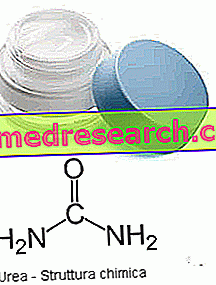
What is Arcalyst?
Arcalyst is a powder and solvent to be reconstituted in a solution for injection. It contains the active substance rilonacept (80 mg / ml).
What is Arcalyst used for?
Arcalyst is indicated for the treatment of cryopirine-associated periodic syndromes (CAPS). CAPS are a group of diseases in which patients have a defect in the gene that produces a protein called cryopirin. This causes inflammation in different areas of the body with symptoms such as fever, rash, joint pain and fatigue. Serious disabilities such as deafness and loss of vision may also occur.
Arcalyst is indicated for the treatment of CAPS with severe symptoms in adults and even children of age
over 12 years, including familial auto-inflammatory cold syndrome (FCAS) and Muckle-Wells syndrome (MWS).
Because the number of patients with CAPS is low, the disease is considered "rare" and Arcalyst was designated an "orphan medicine" (a medicine used in rare diseases) on 10 July 2007.
The medicine can only be obtained with a prescription .
How is Arcalyst used?
Treatment with Arcalyst should be initiated and supervised by a specialist who is experienced in the diagnosis and treatment of CAPS.
Arcalyst is given by subcutaneous injection (under the skin). Adults should be given an initial dose of two 160 mg injections each in two different areas of the body on the same day.
A week later it should be given once a week with a 160 mg injection.
In children aged 12 to 17 the dose depends on the patient's weight. The initial dose is 4.4 mg per kilogram of body weight, followed a week later by an injection of 2.2 mg / kg once a week.
The patient can give the injection alone, provided he has received adequate instructions, if the doctor considers it appropriate. Patients treated with Arcalyst must be given an alert card that summarizes the main information on the safety of the medicine.
How does Arcalyst work?
The active substance in Arcalyst, rilonacept, is an interleukin inhibitor. It acts by binding to
chemical messengers present in the body called interleukin-1 beta and interleukin-1 alpha. One of these messengers, interleukin-1 beta, is produced at high concentrations in patients with CAPS, causing inflammation. By binding to interleukin-1 beta, it inhibits its activity, thus helping to alleviate the symptoms of the disease.
What studies have been carried out on Arcalyst?
The effects of Arcalyst were first tested in experimental models before being studied in humans.
In the first part of a main study involving 47 CAPS patients, it was
given Arcalyst or placebo (a dummy treatment) for six weeks. In the second part of the study, all patients were given treatment with Arcalyst before administering Arcalyst or placebo for a further nine weeks.
The main measure of effectiveness of the medicine was the degree of symptom reduction after six weeks of treatment and the duration of improvements after nine weeks of treatment.
Five symptoms (rash, fever or chills, joint pain, fatigue and redness or eye pain) were assessed by the patients themselves on a scale of 0 to 10 points.
What benefit has Arcalyst shown during the studies?
Arcalyst was more effective than placebo in the treatment of CAPS symptoms. After six weeks of treatment, a reduction in symptoms of 2.5 points on the scale was recorded in patients taking Arcalyst compared to 0.3 points recorded in patients who took placebo. In the second part of the study the symptoms increased more in patients who switched to placebo (0.9 points) than in patients who continued with Arcalyst (0.1 points).
What is the risk associated with Arcalyst?
The most common side effects with Arcalyst (seen in more than 1 patient in 10) are reactions at the site of the injection, infections of the upper respiratory tract (cold), sinusitis (inflammation of the paranasal sinuses) and headache. For the full list of all side effects reported with Arcalyst, see the Package Leaflet.
Arcalyst should not be used in people who may be hypersensitive (allergic) to rilonacept or any of the other components. It should not be given to patients with a serious active infection.
Interleukin-1 blockade can interfere with the body's immune response to infections. Serious infections have been reported in patients taking Arcalyst.
Why has Arcalyst been approved?
The Committee for Medicinal Products for Human Use (CHMP) has determined that the benefits of Arcalyst outweigh its risks in the treatment of cryopirin-associated periodic syndromes (CAPS) with severe symptoms, including cold family auto-inflammatory syndrome (FCAS) and Muckle-Wells syndrome (MWS). The committee therefore recommended that Arcalyst be given marketing authorization.
Arcalyst has been authorized in "exceptional circumstances". This means that, since the diseases are rare, it has not been possible to obtain complete information on Arcalyst. The European Medicines Agency reviews all new information on the medicine every year and this summary will be updated as necessary.
What information is still awaited for Arcalyst?
The company that produces Arcalyst will regularly provide information on the safety and effectiveness of
Arcalyst in adults and children from a registry and will carry out a study on children to examine more closely what happens to the medicine in the body.
What measures are being taken to ensure the safe use of Arcalyst?
The company that produces Arcalyst will supply, in all the Member States, the doctors who will prescribe Arcalyst a package containing information on the prescription of the medicine, an alert card for the patient and information for the doctor explaining the risk of undesirable effects and the correct use of the medicine.
More information on Arcalyst:
On October 23, 2009, the European Commission granted a marketing authorization for Arcalyst, valid throughout the European Union, to Regeneron UK Limited.
For a summary of the opinion of the Committee for Orphan Medicinal Products on Arcalyst, click here.
The full EPAR for Arcalyst can be found here.
Last update of this summary: 08-2009.



